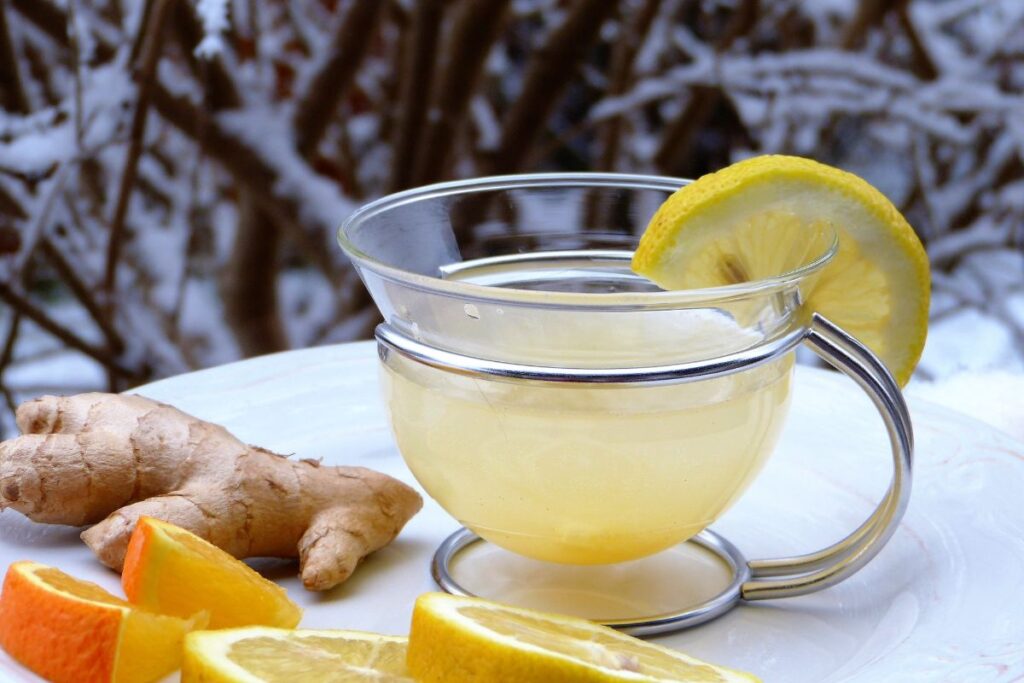How To Boost Immunity?
Author:
Unlock your full potential by engaging with our experts and community! Have questions about your fitness journey or looking for expert advice on weightlifting techniques? Don’t hesitate — leave a comment below and Sergii Putsov will provide a personalized answer and insights to help you reach your goals.
Torokhtiy is reader-supported. Some links are affiliate links, and we may earn a commission at no extra cost to you. See our disclosure page for details.

Intensive training has a strong influence on the immune system of professional athletes and people who are engaged in strength training at amateur and professional levels. Heavy physical activity causes immunological changes, similar to those observed in injuries, burns or even surgical interventions. The most common type of diseases that affect athletes are upper respiratory tract infections: cold and influenza.
In this article, I will tell you how to reduce the risk of picking up a viral infection during the cold season and what supplements can be considered as aids.
At first – Basic preventive measures
Key rules on the prevention of cold diseases also apply to athletes. Moreover, these recommendations are even more important for athletes. To reduce the risk of viral diseases, athletes are advised to:
- Wash often your hands with soap and use alcohol disinfectors.
- Do not touch your nose, eyes, and lips with unwashed hands.
- Avoid overcrowding places during the cold season.
- Avoid contact with sick people.
- Resist stress, relax, and meditate.
- Sleep for more than 7 hours.
Tips for Nutrition Correction and Supplement Intake
During moderate intensity exercises, with balanced and varied nutrition, no diet correction and supplements are required. Light and moderate loads strengthen immunity themselves. But with the training of high duration and/or intensity, correction of nutrition and supplement intake can give its advantages.
You may like it:
Tip #1: Eat enough calories, carbs, and protein.
During very heavy training it is desirable not to reduce the dietary energy consumption. There is proof that even a few days of limited energy consumption are able to reduce immune function.
It is recommended to consume at least as many calories as you spend. This will reduce the level of stress hormones and substances that are involved in inflammatory reactions. The sufficient intake of calories, carbs, and proteins also reduces the use of immune cell proteins, which can be spent on energy production in low-calorie nutrition.
Tip #2: Make sure you eat in a diverse and balanced way.
Daily consumption of all 5 groups of products (cereals, fruits, vegetables, protein groups, and dairy products), as well as variety in nutrition help to obtain the whole set of irreplaceable nutrients (vitamins and minerals). With a lack of several or individual vitamins and minerals, the immune function does not work by 100%.
Tip #3: Don’t spend money on ineffective supplements.
Scientists continue to test which BADs can reduce the risk of developing upper respiratory tract diseases. However, among a large number of advertised means, only a few can be useful. I recommend you pay attention to only 4 supplements.

Vitamin C
For athletes who train hard during the cold season, additional vitamin C intake at 250 mg – 1 g per day can reduce the probability of upper respiratory tract diseases by 50%. Consume more products that are rich in vitamin C (sweet pepper, citrus, broccoli, and other cabbage) and take a supplement at 500 mg.
Vitamin D
Vitamin D deficiency is associated with an increased risk of upper respiratory tract diseases. At the moment the best recommendation is to control vitamin D level in blood and strive to maintain its concentration at the level > the 75 nmol/l. To maintain normal vitamin D concentration in the period from autumn to spring, it is recommended to take it in the form of a supplement (dosage – 1000 IU). If the concentration falls below 75 nmol/l, athletes can take vitamin D at a dose of up to 4,000 IU during the winter months, but no more.
If you live in states or regions where sunny weather and high temperatures are all year round, taking vitamin D in the form of a supplement is not required and can even harm. Remember that our skin produces vitamin D under the influence of sunlight.
Probiotics
When athletes daily consumed probiotics, it reduced by 50% the probability of the development of diseases of the upper respiratory tract. To have the effect, the daily dosage should be about 110 of live bacteria. In the tested BADs, which showed a decrease in morbidity in athletes, 2 strains of bacteria were contained: Lactobacillus and Bifidobacterium.
Quercetin
It is a flavonoid substance that has anti-inflammatory properties. Quercetin intake at a dosage of 0.2-1.2 g/day reduces the incidence of the upper respiratory tract by 33%.
The main sources of quercetin are red and purple-colored plants: red onions, apples, peppers, tomatoes, red grapes, ashberry, cowberry, raspberry, blueberries, cranberries, as well as tea and cauliflower. Note that most of these foods contain a lot of vitamin C. By consuming them in large quantities, you get both quercetin and vitamin C. Additionally, one can consider the quercetin intake in the form of BAD at a dosage of 500-1000 mg.
Finally, I will give you several recommendations regarding the training during the cold season:
- Manipulate the training volume and/or intensity to reduce the risk of overtraining.
- If you have planned to increase the volume or intensity of training, do it very slowly – by 5-10% per week.
- The training program should contain not only long-term and exhausting, but also short high-intensity training.
- Use the periodization principle – schedule recovery periods (lasting 1 week) every few weeks of hard training cycles.
Be healthy!
You might be interested in:
Why Trust Us?
With over 20 years in Olympic weightlifting, strength training, nutrition coaching, and general fitness our team does its best to provide the audience with ultimate support and meet the needs and requirements of advanced athletes and professional lifters, as well as people who strive to open new opportunities and develop their physical capabilities with us.
By trusting the recommendations of our certified experts in coaching, nutrition, and sports training programming, as well as scientific consultants, and physiotherapists, we provide you with thorough, well-considered, and scientifically proven content. All the information given in the articles concerning workout programming, separate exercises, and athletic performance, in general, is based on verified data.
The product testing process is described in more detail here.
Author: Sergii Putsov
Head of Sport Science, PhD
Best Results: Snatch – 165 kg,
C&J – 200 kg
Sergii Putsov, Ph.D., is a former professional weightlifter and National team member, achieving multiple medals in the 94 kg weight category at national competitions. With a Master’s degree in “Olympic & Professional Sport Training” and a Sport Science Ph.D. from the International Olympic Academy, Greece, Sergii now leads as the Head of Sport Science. He specializes in designing training programs, writing insightful blog articles, providing live commentary at international weightlifting events, and conducting educational seminars worldwide alongside Olympic weightlifting expert Oleksiy Torokhtiy.




Still have questions after reading our article? Unlock your full potential by engaging with our experts and community! Don’t hesitate — leave a comment below and Sergii Putsov will provide a personalized answer and insights to help you reach your goals.